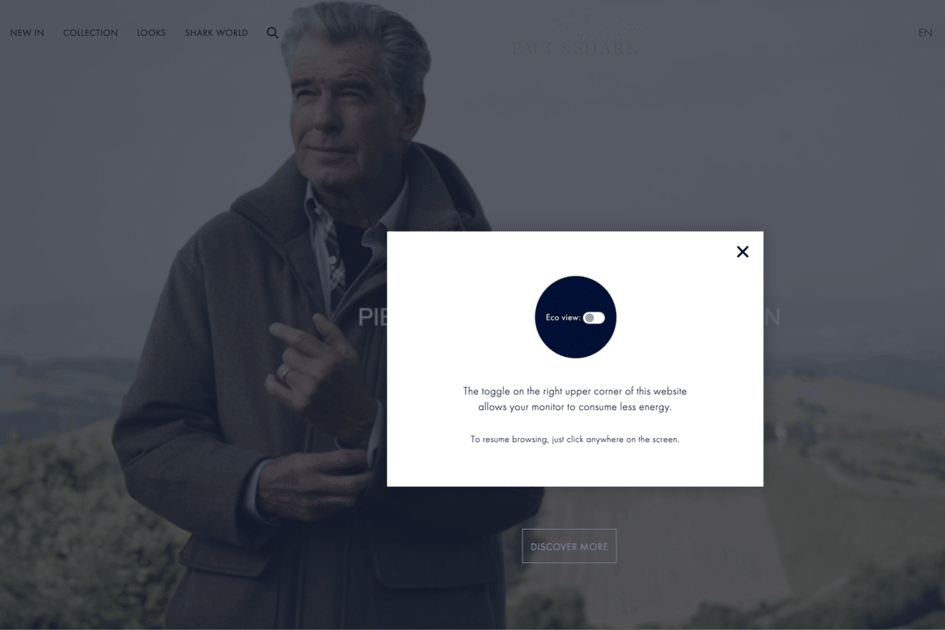Paul & Shark launch eco-view website Credits: Paul & Shark
Websites, once deemed innocuous, have emerged as surprising sources of energy consumption and CO2 emissions. British fashion brand Paul & Shark haven introduced a more environmentally friendly iteration of its online store, utilising innovative techniques to reduce its CO2e equivalent emissions by 21 percent, despite a 20 percent surge in website traffic.
The company said the digital transformation aligns with its broader sustainability ambitions, as the brand seeks to rejuvenate its image through a global communication strategy. The "eco view website" initiative from Paul & Shark constitutes a pioneering endeavor within the fashion industry, the brand said in a statement. It commenced with an analysis to gauge the emissions stemming from the brand's previous website, followed by rigorous assessments conducted by Karma Metrix.
The substantial reduction in CO2 equivalent emissions is primarily attributed to the integration of an "eco-view" feature, which economizes on energy while rendering webpage content. The company said measures have been taken to streamline image and video uploads, a practice that traditionally consumes additional energy and hampers response times, which will now be optimised through this methodology.
From an aesthetic standpoint, the redesigned website seeks to enhance the user experience, immersing visitors in the brand's ethos. The outcome is a visually impactful and engaging interface featuring full-screen images and a layout reminiscent of social media platforms. The entire collection is readily accessible, allowing users to delve into product details with a single click.
As per "Lean ICT: Toward Digital Sobriety," a report by The Shift Project, the internet and digital technology were responsible for 3.7 percent of greenhouse gas (GHG) emissions in 2018, a figure akin to the global aviation industry, and that is set to double by 2025.
For best practice, sustainable websites would operate on renewable energy sources while minimising energy consumption. Furthermore, they adhere to ethical principles, provide value, and refrain from exploitative practices.
http://dlvr.it/Sy9t4n

No comments:
Post a Comment